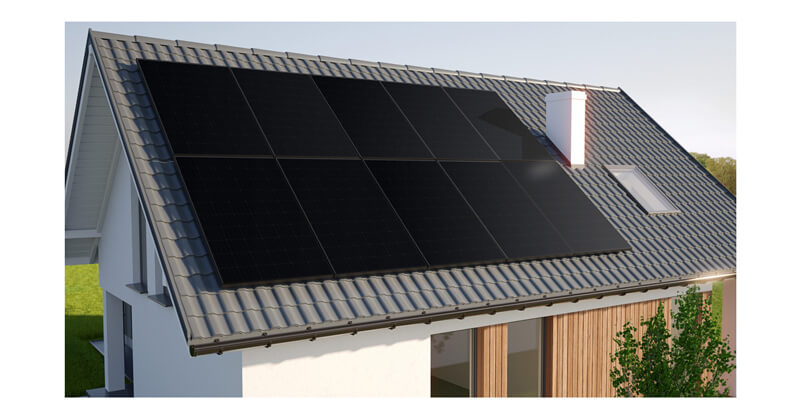Contents:
When considering solar panels for your home or business, understanding their weight is an essential factor. QCell solar panels, known for their efficiency and durability, come in various models with differing weights. In this article, we will explore the weight of QCell solar panels, why it matters, and how it can affect your installation process.

Understanding Solar Panel Weight
The weight of solar panels can influence several aspects of installation, including the structural integrity of the mounting surface, transportation logistics, and installation techniques. QCell panels, like other solar panels, typically weigh between 40 to 50 pounds (approximately 18 to 23 kilograms) per panel. This weight can vary slightly depending on the specific model and design features.
Factors Influencing Weight
-
Materials Used: QCell solar panels are constructed using high-quality materials, including tempered glass, aluminum frames, and advanced photovoltaic cells. These materials contribute to the panel's overall weight but also enhance durability and performance.
-
Panel Size: The dimensions of the panel directly affect its weight. Larger panels will naturally weigh more due to the increased surface area and material used in their construction.
-
Technology: QCell incorporates various technologies in its panels, such as half-cell technology and PERC (Passivated Emitter and Rear Cell) designs, which can also influence weight while enhancing efficiency.
Installation Considerations
When planning an installation, it’s crucial to consider the weight of the solar panels. Here are some key points:
-
Structural Support: Ensure that the roof or mounting surface can support the combined weight of the panels, along with any additional load from mounting hardware and environmental factors (like snow or wind).
-
Transport and Handling: Knowing the weight of the panels will help you arrange for appropriate transport and handling during installation. QCell panels, being relatively heavy, require careful maneuvering to avoid damage.
-
Installation Crew: The weight of the panels can also dictate the size of the installation crew. Heavier panels may require more manpower for safe and efficient installation.
Weight Comparison with Other Brands
When comparing QCell solar panels to other brands, it's beneficial to note how their weights stack up. Many manufacturers offer panels in a similar weight range, but differences in construction and design can lead to variations. QCell’s commitment to quality often results in slightly heavier panels, which translates into robust performance and longevity.
To provide a clearer comparison of QCell panel weights alongside some other popular brands, the following table outlines the specifications:
|
Brand
|
Model
|
Weight (lbs)
|
|
QCell
|
Q.Peak DUO G6+
|
44
|
|
LG
|
NeON R
|
41.5
|
|
SunPower
|
Maxeon 6
|
40
|
|
Canadian Solar
|
BiHiKu
|
49.5
|
By understanding the weight of QCell solar panels, you can make informed decisions regarding your solar energy system. Whether it’s about structural considerations or installation logistics, being aware of panel weight is crucial for a successful solar project.
Performance Versus Weight
While weight is an important consideration, it's essential to weigh it against performance factors. QCell solar panels are designed to provide high efficiency and reliability, which often justifies their weight. Here are a few performance aspects to consider:
-
Energy Output: Heavier panels can often accommodate more advanced technologies and materials, contributing to higher energy output. QCell's use of PERC technology and half-cell design allows for greater energy capture, even in low-light conditions.
-
Durability: The robust materials used in QCell panels not only contribute to weight but also enhance their lifespan and resilience against environmental stressors such as hail, wind, and extreme temperatures.
-
Efficiency Ratings: QCell panels typically boast efficiency ratings above 20%, making them competitive in the market. The combination of weight and technology means that these panels deliver excellent performance over their lifespan.
Transportation and Installation Tips
Understanding the logistics surrounding the weight of QCell solar panels can streamline the installation process. Here are some practical tips:
-
Pre-Installation Planning: Assess the site and ensure that the structural integrity of the roof or mounting area can handle the total weight of the solar system. It might be wise to consult with a structural engineer if there are concerns.
-
Use Proper Equipment: Employ lifting equipment or tools designed for heavy loads to minimize the risk of injury during transportation and installation. This is especially important for larger solar systems with multiple panels.
-
Safety First: Ensure that the installation crew is trained in handling heavy materials. Proper safety protocols should always be followed to prevent accidents during the installation process.
QCell's Market Position
QCell is recognized for its commitment to quality and innovation in the solar industry. Their focus on producing durable, efficient panels has garnered a solid reputation among both residential and commercial users. The weight of their panels is just one aspect of their comprehensive approach to solar energy solutions.
Conclusion
By considering the weight of QCell solar panels alongside their performance characteristics, potential buyers can make well-informed decisions. This understanding not only aids in planning but also enhances the overall experience of transitioning to solar energy. As you evaluate your options, keep in mind how the unique features of QCell panels align with your energy goals and installation capabilities.






